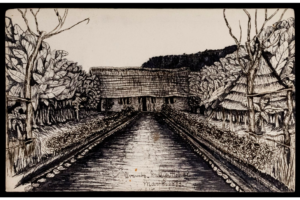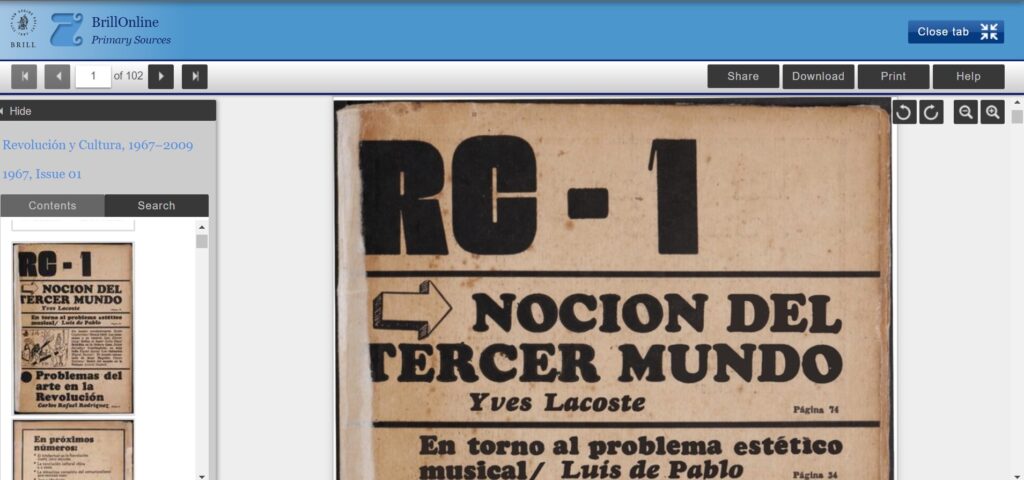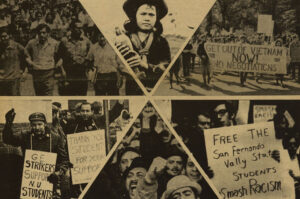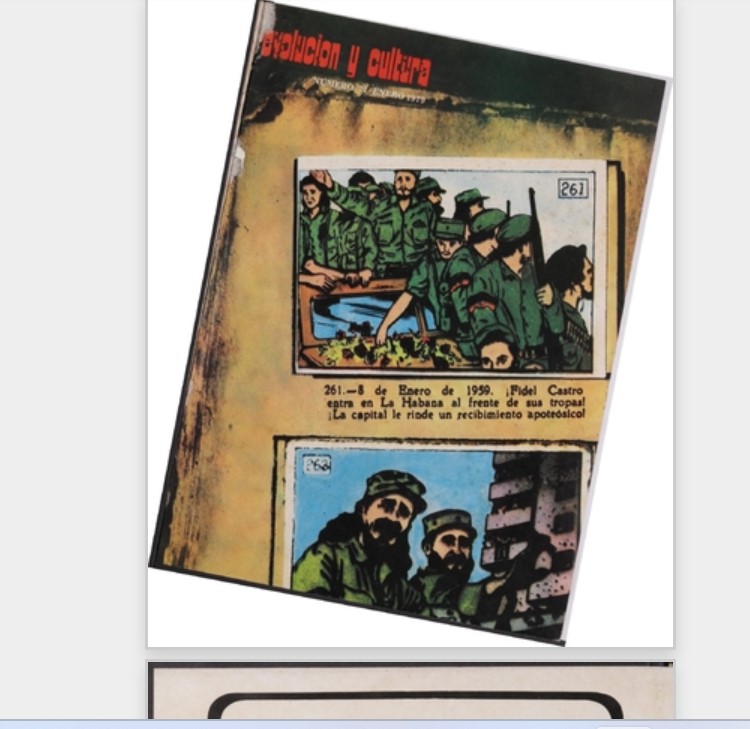History Collection
Workshop: HTML/CSS Toolkit for Digital Projects
HTML/CSS Toolkit for Digital Projects
Wednesday, May 3rd, 2:10-3:30pm
Online: Register to receive the Zoom link
Stacy Reardon and Kiyoko Shiosaki
If you’ve tinkered in WordPress, Google Sites, or other web publishing tools, chances are you’ve wanted more control over the placement and appearance of your content. With a little HTML and CSS under your belt, you’ll know how to edit “under the hood” so you can place an image exactly where you want it, customize the formatting of text, or troubleshoot copy & paste issues. By the end of this workshop, interested learners will be well-prepared for a deeper dive into the world of web design. Register here.
Please see bit.ly/dp-berk for details.
TRIAL: Africa and the New Imperialism
 Until May 4th, the Library has trial access to a new digital archive produced by AM (formerly Adam Matthew Digital) titled Africa and the New Imperialism: European Borders on the African Continent, 1870-1914.
Until May 4th, the Library has trial access to a new digital archive produced by AM (formerly Adam Matthew Digital) titled Africa and the New Imperialism: European Borders on the African Continent, 1870-1914.
Africa and the New Imperialism documents the period of rapid colonial expansion by European powers across the African continent during the late nineteenth and early twentieth century.
From the accounts of missionaries and European explorers navigating the interior of the continent in the early nineteenth century; to the rise in European desire for increased power, empire and wealth culminating in the Berlin Conference 1885-1886; to the subsequent power struggles, negotiations and conflicts that raged across the continent at the turn of the twentieth century, the documents within Africa and the New Imperialism charts Africa’s encounters with European imperialist regimes and their impact on the lives of peoples across the continent.
Materials in the digital archive were sourced from archives in France and the United Kingdom, under the guidance of the resource’s editorial board.
In recent years AM has made significant advancements in handwritten text recognition (HTR) technology, which first allowed for searching of handwritten documents, then on-the-fly transcription of handwritten documents. This digital archive is hosted on their newest platform, and allows for side-by-side views of the documents and their transcriptions. (Normally, both the documents and their transcriptions can be downloaded, but our trial access does not allow for downloads. ) While the transcriptions are less than perfect, they can still be helpful with interpreting handwritten documents.
Workshop: By Design: Graphics & Images Basics
By Design: Graphics & Images Basics
Thursday, April 6th, 3:10-4:30pm
Location: Doe 223
Lynn Cunningham
In this hands-on workshop, we will learn how to create web graphics for your digital publishing projects and websites. We will cover topics such as: sources for free public domain and Creative Commons images; image resolution for the web; and basic image editing tools in Photoshop. If possible, please bring a laptop with Photoshop installed. (All UCB faculty and students can receive a free Adobe Creative Suite license: https://software.berkeley.edu/adobe) Register here.
Upcoming Workshops in this Series – Spring 2022:
- HTML/CSS Toolkit for Digital Projects
Please see bit.ly/dp-berk for details.
Workshop: “Can I Mine That? Should I Mine That?”: A Clinic for Copyright, Ethics & More in TDM Research
“Can I Mine That? Should I Mine That?”: A Clinic for Copyright, Ethics & More in TDM Research
Wednesday, March 8th, 11:10am-12:30pm
Online: Register to receive the Zoom link
Tim Vollmer and Stacy Reardon
If you are working on a computational text analysis project and have wondered how to legally acquire, use, and publish text and data, this workshop is for you! We will teach you 5 legal literacies (copyright, contracts, privacy, ethics, and special use cases) that will empower you to make well-informed decisions about compiling, using, and sharing your corpus. By the end of this workshop, and with a useful checklist in hand, you will be able to confidently design lawful text analysis projects or be well-positioned to help others design such projects. Consider taking alongside Copyright and Fair Use for Digital Projects. Register here.
Upcoming Workshops in this Series – Spring 2022:
- By Design: Graphics & Images Basics
- HTML/CSS Toolkit for Digital Projects
Please see bit.ly/dp-berk for details.
Zotero workshops: Basic and Advanced
 Introduction to Zotero will be offered on Thursday, March 9 at 10:10, 12:10, and 4:10. This is a 50-minute workshop offered via Zoom. Intended for new or potential users of Zotero, it explains the features of the citation manager and covers how to import different types of items into your Zotero library, methods for exporting bibliographies into Word or Google Docs, and sharing Zotero resources among groups.
Introduction to Zotero will be offered on Thursday, March 9 at 10:10, 12:10, and 4:10. This is a 50-minute workshop offered via Zoom. Intended for new or potential users of Zotero, it explains the features of the citation manager and covers how to import different types of items into your Zotero library, methods for exporting bibliographies into Word or Google Docs, and sharing Zotero resources among groups.
Advanced Zotero will be offered via Zoom Monday, March 13 & Tuesday, March 14 from 12:10-1:30.
This session covers:
- The many different techniques for adding items to your Zotero library
- Linked files vs. stored files
- Zotero storage vs using Zotfile to store attachments in another cloud app
- Creating and managing groups
- Zotero 6.0 PDF viewer and annotation extractor
- Zotero 6.0 Add note feature
- Indexing and searching your Zotero library and attachments
Registration is required so that you can receive the Zoom link 24 hours in advance of the workshop. Register at https://tinyurl.com/UCBlibworkshops.
The Library attempts to offer programs in accessible, barrier-free settings. If you believe you may require disability-related accommodations, please contact me (Jennifer Dorner) at dorner@berkeley.edu.
Text Analysis with Archival Materials: Gale Digital Scholar Lab
Text Analysis with Archival Materials: Gale Digital Scholar Lab
Thursday, February 16th, 2:00-3:00pm
Online: Register to receive the Zoom link
The Gale Digital Scholar Lab is a platform that allows researchers to do text data mining on archival collections available through Gale (see list below). During this session we’ll cover the workflow for using the Lab, focusing on the Build, Clean, and Analyze steps. We’ll review curating and creating a content set, developing clean configurations, applying text data mining analysis tools, and exporting your Lab results. We’ll also review new Lab updates and explore the Lab Learning Center.
Primary source collections available in Gale include: American Fiction, 17th and 18th Century Burney Collection, American Civil Liberties Union Papers, 1912-1990, American Fiction, Archives Unbound, Archives of Sexuality & Gender, British Library Newspapers, The Economist Historical Archive, Eighteenth Century Collections Online, Indigenous Peoples: North America, The Making of Modern Law, The Making of the Modern World, Nineteenth Century Collections Online, Nineteenth Century U.S. Newspapers, Sabin Americana, 1500-1926, The Times Digital Archive, The Times Literary Supplement Historical Archive, U.S. Declassified Documents Online
This event is part of the UC-wide “Love Data Week” series of talks, presentations, and workshops to be held February 13-17, 2023. All events are free to attend and open to any member of the UC community. To see a full list of UC Love Data Week 2023 events, please visit: https://bit.ly/UC-LDW
Related LibGuide: Text Mining & Computational Text Analysis by Stacy Reardon
Bancroft Roundtable: California and the Making of ‘Latin America’: A View From the 19th-Century Hemispheric Archive
California and the Making of ‘Latin America’: A View From the 19th-Century Hemispheric Archive
February 16, 2023 | Noon | Register via Zoom
Presented by Alexander Chaparro-Silva, Ph.D. candidate in history, The University of Texas at Austin, and 2022 recipient of The Bancroft Library Summer Study Award
During the 19th century, many intellectuals and diplomats from Latin America came to California, published continental newspapers and books, sponsored intellectual circles and political clubs, and established transnational correspondence networks to engage with the political problems common to the American hemisphere. These transnational crossings contributed to debates over slavery, citizenship, and immigration in Latin America and reinforced an Anglo/Latin distinction within the hemisphere as the boundary between two competing civilizations. Drawing upon 19th-century printed materials, travelogues, diaries, official documents, and diplomatic correspondence — many from The Bancroft Library — Alexander Chaparro-Silva will explore the role of these hemispheric mobilities in the making of the geopolitical category of “Latin America,” and reflect on the possibilities and challenges of assembling a hemispheric archive dispersed across a vast geography.
We look forward to seeing you at these talks.
Workshop: Publish Digital Books & Open Educational Resources with Pressbooks
Publish Digital Books & Open Educational Resources with Pressbooks
Wednesday, February 8th, 11:10am-12:30pm
Online: Register to receive the Zoom link
Tim Vollmer
If you’re looking to self-publish work of any length and want an easy-to-use tool that offers a high degree of customization, allows flexibility with publishing formats (EPUB, PDF), and provides web-hosting options, Pressbooks may be great for you. Pressbooks is often the tool of choice for academics creating digital books, open textbooks, and open educational resources, since you can license your materials for reuse however you desire. Learn why and how to use Pressbooks for publishing your original books or course materials. You’ll leave the workshop with a project already under way! Register here.
Upcoming Workshops in this Series – Spring 2022:
- Can I Mine That? Should I Mine That?: A Clinic for Copyright, Ethics & More in TDM Research
- By Design: Graphics & Images Basics
- HTML/CSS Toolkit for Digital Projects
Please see bit.ly/dp-berk for details.
Trial of Brill’s Revolución y Cultura, 1961–2003 (ending February 21, 2023)
Revolución y Cultura, 1961–2003(Cuba)
Please access the trial through February 21, 2023, here
At UC Berkeley Library, we have several individual issues of Revolución y Cultura, however, Brill has produced a complete digitized archive of it that is searchable. We have set up a trial of this resource through February 21, 2023. We look forward to hearing your comments regarding the utility of this resource in your teaching and research. Please feel free to contact your librarian for the Caribbean and Latin American Studies here.

About:
Revolución y Cultura is a fundamental and often unique resource for the study of more than half a century of Cuban culture. Founded as a biweekly in 1961 under the title Pueblo y Cultura and continued in 1965 as the bilingual magazine Revolution et/and Culture and as RC in 1967, Revolución y Cultura has published uninterruptedly since March 1972. From its foundation until 1977, when the Cuban Ministry of Culture was created, it appeared as the official organ of Cuba’s National Council of Culture.
From 2004 to 2019 it was published both in print and electronically. Since mid-2019, Revolución y Cultura is published online only. Revolución y Cultura is listed in the UNESCO Portal of Culture of Latin America and the Caribbean (Source: Brill)
Primary Sources: Student Activism
 Reveal Digital’s Student Activism collection aims to provide access to unique, yet essential, primary sources documenting the deep and broad history of student organizing in the United States. It is intended to serve as a scholarly bridge from the extensive history of student protest in the United States to the study of today’s vibrant, continually unfolding actions.
Reveal Digital’s Student Activism collection aims to provide access to unique, yet essential, primary sources documenting the deep and broad history of student organizing in the United States. It is intended to serve as a scholarly bridge from the extensive history of student protest in the United States to the study of today’s vibrant, continually unfolding actions.
The completed collection will contain approximately 75,000 pages drawn from special collection libraries and archives around the country. Materials intended for inclusion are wide-ranging in nature: Circulars, leaflets, fliers, pamphlets, newsletters, campaign materials, protest literature, clippings, periodicals, bulletins, letters, press releases, ephemera; and meeting, demonstration, conference, and event documentation. Currently approximately 58,000 pages are available.


